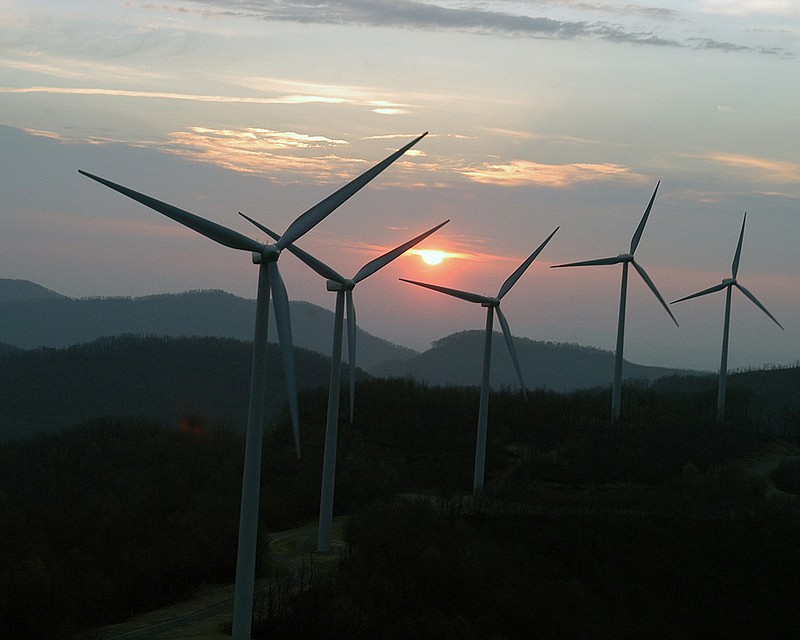Science matters.
But not so much so that you'd notice it in the Trump administration.
A little over a week ago, Energy Secretary Rick Perry told CNBC he does not believe carbon dioxide emissions from human activity are the main driver of climate change. Rather than CO2, he thinks that "most likely the primary control knob is the ocean waters and this environment that we live in."
By his logic, wouldn't hot water in your sink heat your kitchen? And apparently it would do so without that water ever cooling off.
Further, Perry says he considers his skepticism toward climate data to be a sign of a "wise, intellectually engaged person."
Several days later at an "Energy Week" press briefing at the White House, Perry called for "an intellectual conversation" on global warming: "Can we agree we ought to have a conversation as a people?" he asked. "Intellectually engaged, not screaming at each other, and not standing up in the middle of my speeches and saying you're a climate denier, when the fact is, I just want to have a conversation about this."
We would all agree: Absolutely. But we wonder where this former Texas governor who now holds a very important position in our country has been for the past decade while the rest of the world has indeed had an "intellectually engaged" conversation about climate change and energy policy.
A whopping 97 percent of climate scientists say climate change is happening and it's caused largely by humans burning fossil fuels for energy. If just one climate scientist said there is a 97 percent chance of rain today, it's a pretty good bet you'll be taking your umbrella when you leave the house. Unless you're Rick Perry - the guy in charge of America's energy policy.
Today, smart "intellectually engaged" people have moved on to the new and important conversations about consequences, solutions and points of no return.
It's not the first time Perry has been woefully in the dark.
Perry, who studied animal husbandry and led cheers at Texas A&M University before entering politics, didn't know exactly what it was Trump had offered him when he said yes to becoming the head of the Department of Energy (the same agency Perry couldn't remember when in a presidential primary debate he tried to tick off the three agencies he would eliminate).
When Perry accepted Trump's offer, he believed he was taking on a role as global ambassador for the American oil and gas industry which he has long championed, according to The New York Times. He was surprised to learn that the DOE is an agency with a $30 billion budget devoted to maintaining, refurbishing and keeping safe the nation's nuclear stockpile; thwarting nuclear proliferation; cleaning up and rebuilding an aging array of nuclear production facilities, and overseeing our government's national science (emphasis on science) laboratories like Oak Ridge. He acknowledged that he has "a long learning curve."
Sadly, however, Perry still joins Trump's new EPA administrator, Scott Pruitt, in casting doubt on the conclusion of some of the government's top scientists.
Pruitt, like Perry, is way out of his league. As attorney general in Oklahoma, he sued EPA 13 times trying to block every concrete step the agency had taken to regulate carbon dioxide emissions. Still, he told the senators in charge of confirming him: "I believe the EPA has a very important role to perform in regulating CO2."
Apparently that role is to regulate a freer release of CO2 to help Oklahoma's fracking industry drill faster.
Fracking has been justified as a bridging fuel between coal and a low-carbon future, but that's only true if methane leakage is no more than 2-3 percent, studies show. That's because methane is a super-potent greenhouse gas which traps 86 times as much heat as CO2 over a 20-year period.
Understanding that methane leaks from fracking gas could erase the climate benefit of that fracked gas, the Obama EPA had created a rule to reduce methane leaks from new and modified oil and natural gas drilling wells. But Pruitt, at the end of May, ordered his EPA to halt enforcement of that rule while EPA reconsiders it and gives the oil and gas industry "a second chance" to comment.
All of this ignorance and skepticism starts at the top.
A couple of weeks ago, President Trump blasted wind power during a rally in Iowa, despite the fact that the state leads the nation in wind power and gets nearly a third of its electricity from the alternative energy source. Trump told his audience he was bringing back coal.
"I don't want to just hope the wind blows to light up your homes," the president said.
Iowa Sen. Chuck Grassley, a Republican who truly understands energy and opportunity in his own state, said last August that Trump would attack wind power "over my dead body."
So if Perry really wants to have "an intellectual conversation," here's a start that's not yesterday's news:
Wind jobs outnumber coal jobs in more than 20 states, and solar jobs outnumber coal jobs in almost two-thirds of states. Solar and wind together beat coal in at least 40 states - including Tennessee and Georgia - according to the 2017 U.S. Energy and Employment Report.
That report was compiled by, you guessed it, Perry's own Department of Energy.
So why were our leaders - especially during "Energy Week" - looking the other way?
